Can you actually eat your way to healthy skin? Keep reading to learn how your food choices can affect your skin health!
The culprits behind poor skin health can be tricky to pin down. All of those breakouts, dry skin, fine lines, and redness sometimes seem like they’re appearing completely randomly.
But did you know that the way you eat can greatly impact the health of your skin?
Our skin is our largest organ. That means our skin is so much more dynamic and complex than it seems from the surface.
And when it comes to skin health, figuring out what’s causing your breakouts or dry, flaky skin can often be a mystery.
Our skin is a window into the health of our entire body. When something is going awry on our skin, it can often point to turmoil elsewhere in our body.
Looking at the health of our skin for more than our appearance can give us greater insight into our overall health and wellbeing.
Our skin is simply another organ that responds favorably or negatively to stresses and strains, just like our gut or our hormones would.
When it comes to naturally achieving healthy skin, I take the same approach as I would if I were focusing on healing any other body system.
Skin health doesn’t happen in a bubble. When you’re focusing on eating for healthy skin, you’re in turn going to be eating to support the health of your entire body.
If you’re ready to learn more about my approach to eating for healthy skin, keep reading!

Factors Behind Skin Health
There are many factors, both internal and external, that can control the health of our skin.
Pinpointing the root cause of stubborn breakouts or embarrassing redness can be difficult and downright frustrating. Trust me; I get it.
But, looking beyond what we see on the surface, our skin health is often controlled by the health of the rest of our body.
The health of our gut, hormones, and inflammatory response are closely intertwined to the health of our skin.
And when we view our skin troubles as insight into our body’s overall health, we can experience improvements both in our skin health and in our health in general.
So, before we dive into the details around nutrition for skin health, let’s learn about the internal factors that can greatly affect the health of our skin.

Healthy Gut, Healthy Skin
It’s no coincidence that scientists have found it necessary to coin the term “the gut-skin axis.” There is a clear connection between the health of our gut and the health of our skin.
Skin health is a good indicator of gut health. And if you’re experiencing skin issues, it’s likely that you have some gut issues as well.
The main driver behind gut-related skin reactions is intestinal permeability.
Intestinal permeability – or “leaky gut” – develops when the integrity of our intestinal lining is compromised. This leakiness can occur for a variety of reasons but is most often a result of a bacterial imbalance, food intolerance, autoimmune disease, or gut inflammation.
Leaky gut results in increased systemic inflammation, which can negatively affect the health of your skin.
Gut Bacteria Play a Role Too
The health of your gut bacteria can also impact the health of your skin.
Our gut bacteria or “microbiome” can actually influence the regulation of lipids and fatty acids in our body. This, in turn, can affect oil production and the development of acne.
In fact, people with chronic acne are more likely to have both leaky gut and bacterial imbalances than those without acne.
Acne isn’t the only skin condition that can result from an unhealthy gut.
Rosacea is more common in people with Small Intestinal Bacterial Overgrowth (SIBO). Those with Celiac Disease are more likely also to have a skin condition called dermatitis herpetiformis. And a new study shows that the same drug can be useful in treating both psoriasis and Chron’s Disease. This means there’s likely an underlying connection between the two conditions.
The depth of the gut-skin connection serves to highlight the importance of gut health when it comes to maintaining healthy skin.
When we are looking to eat for healthy skin, we must eat to support our gut health too.

Healthy Hormones, Healthy Skin
Hormones impact nearly every area of our bodies, whether it’s sex hormones and their influence on our moods, or thyroid hormones and our energy levels. Hormones are powerful chemicals that also have an important effect on the health of our skin.
Usually, when we think of skin woes and hormones, we think of acne. Imbalances in our sex hormones, specifically high testosterone levels, are a primary driver in most cases of adult acne.
But our hormones (and not just our sex hormones) play a large role in the health of our skin far beyond stubborn acne.
Estrogen is protective against signs of aging like fine lines and wrinkles. If your estrogen is too low, you might notice early signs of skin aging.
Our thyroid hormone is also a key driver of healthy skin. If your thyroid hormone Triiodothyronine (T3) is low, you might be noticing that your skin is dryer than usual.
Hypothyroidism can also change how well our sweat glands function. This can result in dry, flaky, and even itchy skin.
Stress and Skin Health
And we can’t talk about hormonal imbalances and skin health without mentioning cortisol. Cortisol, a stress hormone produced by the adrenal glands, is responsible for that infamous “fight-and-flight” response.
When you’re in a high-stress situation, cortisol production is increased in order to keep you alert and your muscles ready to spring into action.
This is a healthy response by your body in the short term. But when stress lasts weeks or months, you may find yourself in a state of chronically high cortisol.
These chronically high cortisol levels can impact your skin by causing an oily, acne-prone complexion.
Identifying and controlling any hormonal imbalances is going to be a big step towards regaining healthy, vibrant skin.

Healthy Inflammation Response, Healthy Skin
If your poor skin health isn’t driven by gut or hormonal imbalances, it may be related to inflammation.
Inflammation, in moderation, isn’t a bad thing. It’s our body’s built-in defense system against invading viruses, bacteria, injuries, and other stressors.
But, when inflammation becomes chronic, we can start to see manifestations in our skin health.
High levels of inflammation result in more rapid breakdown of collagen. Collagen is a protein that makes up the connective tissue in your muscles, tendons, and skin.
This protein is a critical player in healthy skin as it helps maintain skin elasticity and hydration. With a decrease in collagen, we’re more likely to experience skin changes such as fine lines, wrinkles, and dryness.
Inflammation can also be a direct cause of inflammatory acne. And when it comes to the relationship between acne and inflammation, it’s a catch-22.
Inflammation, whether in your skin or anywhere in your body, can cause acne. And acne causes inflammation in your skin, potentially leading to more acne.
Stopping chronic inflammation at its source is the best way to break the vicious acne-inflammation cycle. Sources of inflammation can be anything from a stressful job, food that you’re intolerant to, a gut infection, an autoimmune disease, and more.
If you think inflammation is behind your stubborn acne or other skin woes, teaming up with a trained healthcare practitioner can get you on the path to both decreasing your inflammation and improving the health of your skin.

How to Eat for Healthy Skin
When we’re looking to eat for healthy skin, we need to focus on eating for gut health, hormone balance, and reduced inflammation. These are the main internal drivers behind skin imbalances, and they’re ones that can often be easily remedied using simple dietary changes.
However, sometimes dietary intervention alone is not enough to resolve any imbalances. If this seems to be the case for you, schedule a strategy session with me where we can work on a plan to start getting you back in balance and ultimately clearing up your skin!
But the first step to start improving the health of your skin is making some simple yet effective dietary changes.
Here are my best tips for eating for healthy skin!

Eat for Nutrient Density
The consumption of certain essential vitamins and minerals, many of which are lacking in a Western diet, are critical for maintaining or achieving healthy skin.
Here are some of the vitamins and minerals that are most important when it comes to improving skin health.
Vitamin A
Vitamin A – especially preformed vitamin A as retinol – is one of the most important nutrients for healthy skin.
Specifically, vitamin A promotes cell turnover and inhibits oil gland activity. This makes Vitamin A a great nutrient to focus on if you’re dealing with signs of aging or acne.
Common food sources of preformed vitamin A are organ meats, egg yolks, and cod liver oil.
You don’t need to go crazy on these food sources of vitamin A to reap the benefits. Eating liver a few times a month, and having an egg or two a day, will do great things to support your skin health. (Here’s how to eat liver if you’re not used to it!)

Zinc
When it comes to our skin, zinc is anti-inflammatory, can improve cell-regeneration, and protects against UV radiation.
There are several studies that show dietary zinc can help reduce acne, even perhaps as effectively as some antibiotic treatments. And people with serious acne were found to have lower levels of zinc than people without acne.
Animal sources of zinc, like red meat and shellfish, are going to be your best bet when it comes to increasing this key mineral for skin health. That’s because you can digest and absorb the zinc from animal products far more easily than that from plants, which is often bound to a plant compound called phytate.
Would you like to save this post?
Your email address is 100% safe and will never be sent spam.
You can also soak plant-based sources of zinc, like pumpkin seeds and other nuts. Soaking these nuts and seeds help make the zinc more bioavailable and easier for our bodies to absorb.
Sulfur
Sulfur is the third most abundant mineral in the body. And it’s an extremely important dietary compound for skin health and overall wellbeing.
Sulfur is necessary for collagen synthesis. Collagen is necessary for maintaining youthful skin. When we don’t have enough of it, our skin can get wrinkles and lose its firmness, two of the main signs of aging.
Sulfur also works to improve skin health by increasing levels of glutathione in the body.
When glutathione levels are high, your body is better able to prevent damage caused by free radicals, which is thought to be a major cause of cellular aging.
If you’re experiencing any signs of skin aging, increasing your sulfur consumption may help.
Cruciferous vegetables, like broccoli, brussels sprouts, and cauliflower, are all high sulfur-containing foods. Eating more of these veggies can help support proper glutathione production, and in turn, may help keep your skin looking youthful and radiant.

Vitamin K2
When it comes to improving skin health, vitamin K2 works in tandem with vitamins A and D, two other skin health superstars.
Vitamin K2 is necessary for the proper functioning of vitamin A and D-dependent proteins. That means the positive effects these other two vitamins have on skin health won’t be seen if vitamin K2 levels are low.
Without enough vitamin K2, you’re more likely to develop skin issues such as acne, keratosis pilaris, and other skin symptoms of vitamin A deficiency.
Vitamin K2 is also critical for maintaining skin elastin, the protein that makes our skin springy. Without enough K2, our skin’s elastin can harden and form wrinkles.
Dairy from grass-fed cows, egg yolks, liver, and fermented foods are all great sources of dietary vitamin K2. Many people also take K2 supplements as they are very safe and can benefit our bodies far beyond the impact on our skin.

Avoid Inflammatory Foods
Since inflammation can be one of the main drivers behind poor skin health, eating for healthy skin will focus on avoiding or limiting food sources of inflammation.
Common inflammatory foods for some people include dairy, sugar, and grains. And most people will experience increased inflammation from highly processed foods, alcohol, and sugary beverages.
If you’re dealing with stubborn skin issues, especially acne, it might be a good idea to avoid or limit your intake of these main inflammation drivers, at least for some time.
And besides just avoiding inflammatory foods, your skin health can benefit greatly from increasing your intake of inflammation-reducing foods.
Some great anti-inflammatory foods to include in your diet are:
- Organic berries
- Green tea
- Bone broth
- Salmon
- Garlic
- Turmeric
Adding in a few of these inflammation-fighting foods a day, while limiting your intake of those inflammation-causing foods can help get you on your way to healthy, vibrant skin again.
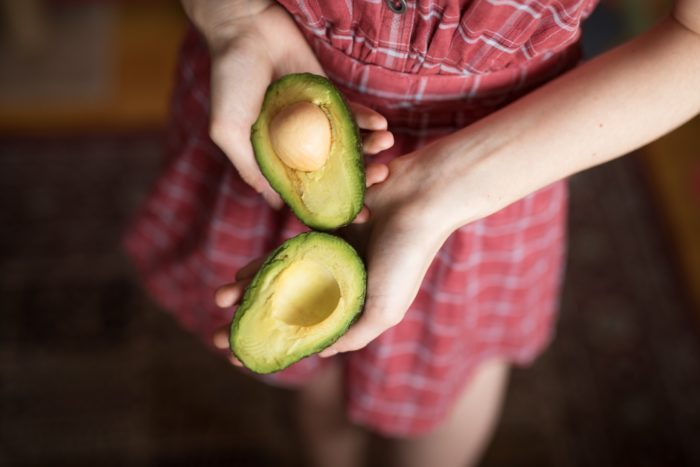
Healthy Fats Are Your Friend
Healthy fat consumption plays a huge role in helping your body produce balanced hormones.
And since having healthy hormones is one key component to healthy skin, including healthy fat in every meal, is a no-brainer.
Focusing on high-quality fats like fatty fish, olives and avocados, grass-fed meats, and coconut products are the way to go to improve both hormone and skin health.
If you’re consuming fats but still having skin issues, making sure your fats have a proper omega-3 to omega-6 ratio can help. Certain cooking oils made from soybeans, corn, canola, or safflower have higher amounts of inflammatory omega-6’s, and not as many healthy omega-3’s.
Switching out those inflammatory cooking oils to things like olive, avocado and coconut oils – or even tallow and lard – can help you increase the amount of inflammation-fighting fats you’re getting each day.
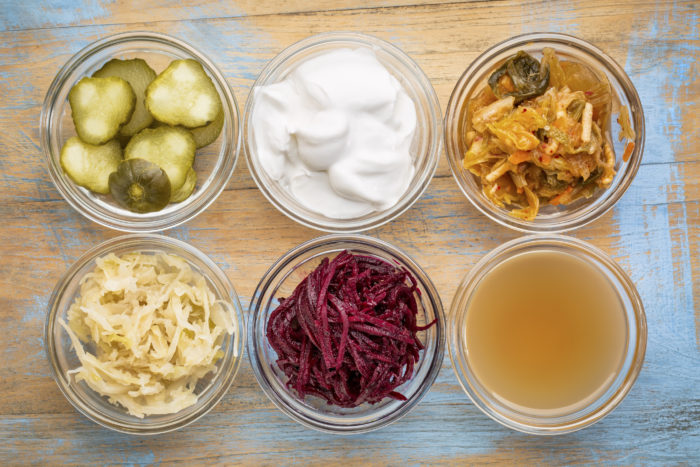
Include Probiotic and prebiotic Containing Foods
As you know by now, when your gut is imbalanced, it can affect the health of your skin as well.
Including a serving or two of probiotic and prebiotic-containing foods per day can help shift that balance back in your favor.
Some common probiotic-containing foods found in stores are raw fermented sauerkraut or kimchi, yogurt with live active cultures, or kombucha. Prebiotic-containing foods include asparagus, bananas, onions, apples, Jerusalem artichoke, and garlic.
Just make sure that the fermented food you’re eating is raw, not pasteurized. The pasteurization process kills any beneficial bacteria in fermented food and therefore killing the gut-boosting benefits as well. Most raw fermented foods will be found in the refrigerated section of the grocery store.
And to get both probiotics and prebiotics in a delicious morning beverage, try Gut Power Drinks Matcha (use the code LAURA for 15% off!)

How to Give Skin Health a TOPICAL Boost
While eating to improve skin health can greatly improve your chances of having clear, glowing skin, it’s not guaranteed. And our skin is usually one of the last organ systems to respond to dietary changes.
While you might be seeing improvements in your gut and hormone health, your skin health may be lagging behind.
I know how frustrating and deflating having chronic skin issues can be. My own struggles with my skin left me feeling self-conscious in social situations. And even though I knew that I was still valuable as a person, I felt more like myself when I had clear skin.
So, while you’re eating all the skin-nourishing foods, I have some additional recommendations for topical skin treatments that can help to kick start the healing process.
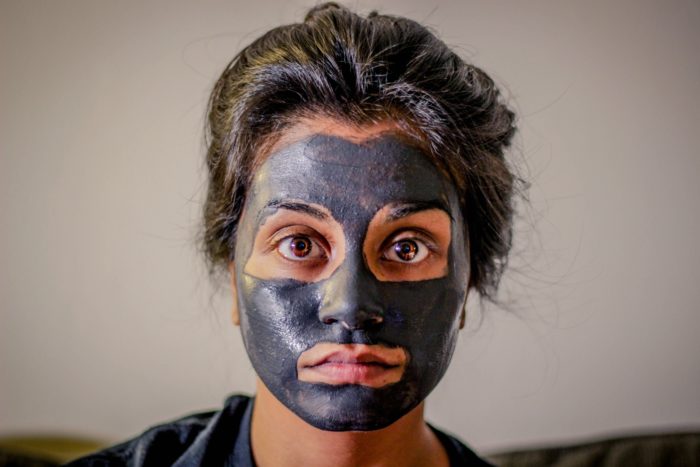
If You Have Acne
Acne can be a big bummer to deal with. Topical interventions are often necessary to see quick relief.
My favorite way to combat stubborn breakouts is by using Beautycounter’s Countercontrol Collection. These products are formulated to fight acne without using harsh or questionable ingredients.
If you’re dealing with constant, severe acne, I’d recommend using all of the products in the collection.
But if you only get a few stubborn acne spots here and there, you’ll likely see positive results by just using a few of the products. I’d highly recommend starting with the SOS Acne Spot Treatment and the Clear Pore Cleanser for occasional breakouts.
The spot treatment is great for when you need a quick fix, and the cleanser works well as a maintenance tool for clear, blemish-free skin!
And of course, for a special treat, you can include everybody’s favorite Beautycounter Balancing charcoal mask as part of your self-care routine for a reduction in acne as well.

If You Want to Prevent Aging
Beautycounter just released a new skincare line called Countertime to help combat the main signs of skin aging.
Topical retinol, the active ingredient in most conventional anti-aging products, has been shown to have questionable side-effects. That’s why Beautycounter developed a line of anti-aging products formulated with a more safe version of retinol, called Retinatural.
This line of anti-aging products is a five-step process designed to visibly firm, brighten, and plump your skin — all without needing to use any potentially harmful ingredients.
If you’re struggling with fine lines, wrinkles, dryness, or loss of skin elasticity, I’d recommend trying out the entire Countertime line as a system.
But, if you’re only looking to start with a few products, my must-haves are the Countertime Tripeptide Radiance Serum and the Ultra Renewal Eye Cream.
You can use these two products nightly and expect to wake up to a brighter, smoother complexion in the morning!

If You Have Redness/Rosacea
When it comes to battling redness and Rosacea topically, hydrating is key!
This is why I recommend products like Beautycounter’s Countermatch Recovery Sleeping Cream and the No. 3 Balancing Facial Oil for overcoming this skin condition.
The Recovery Cream gives your skin a protective layer to help replenish and hydrate while you sleep, so you can wake up with calm and refreshed skin.
And the Balancing Facial Oil is formulated specifically for people with sensitive, redness-prone skin. This oil features wild chamomile which works to calm and soothe your skin. It’s a great solution for combating redness and irritation.
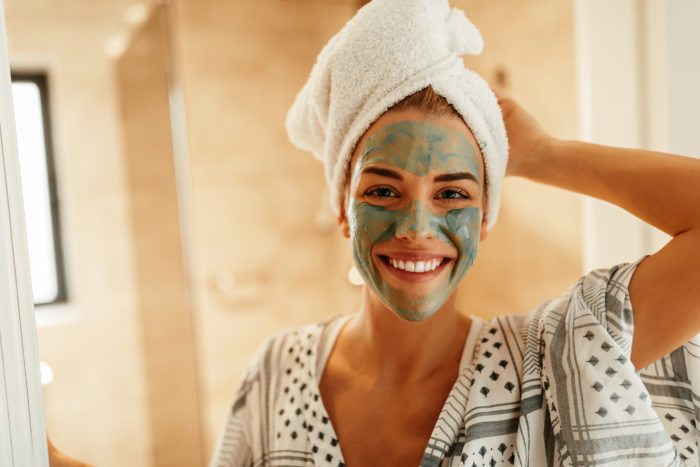
If You Have Dry Skin
Dry skin can be due to underlying imbalances in your body. It can also be a result of dehydration, cold weather, or the natural aging process.
Combating dryness topically is all about moisturizing. That’s why I recommend using the Countermatch line to help hydrate and moisturize dry, flaky skin.
All of the products in the Countermatch line are formulated with what’s called Bio-Mimic Technology. These products are created to match the composition of your skin. They provide exactly as much moisture as your skin needs so that your skin will be hydrated, but not greasy.
My favorite products from the Countermatch line are the Pure Calm Cleansing Milk and the Adaptive Moisture Lotion.
Unlike makeup removers that are harsh and drying, the Cleansing Milk is gentle and removes makeup and dirt without surfactants that can strip away natural oils.
The Adaptive Moisture Lotion can be work under my makeup during the day. This product can provide up to 24-hours of hydration, which keeps makeup looking great and skin feeling smooth and vibrant.
Next Steps for Healthy Skin
Sometimes eating for healthy skin and using great topical products isn’t enough to see complete resolution of your skin challenges.
Remember, your skin is usually the last organ system to respond to any positive changes you’re making. If you’re working hard but still not seeing any results in your skin, patience is a virtue.
But there can be underlying issues, like gut infections, hormonal imbalances, or inflammation that might be keeping you from achieving clear, vibrant skin. And your skin will only reach true health once these underlying issues have been resolved.
If you need help uncovering the root cause of why you’re struggling with your skin health, I’d love to team up with you. Click here to sign up for a one-on-one strategy session with me, and we can come up with a game plan to get your skin health back on track.
Have you seen any positive changes in your skin after changing your diet? Or does your skin usually only respond to topical treatments? Share your skin health journey in the comments below!
This post may contain affiliate links. If you click on a link and make a purchase, I may receive a small commission.
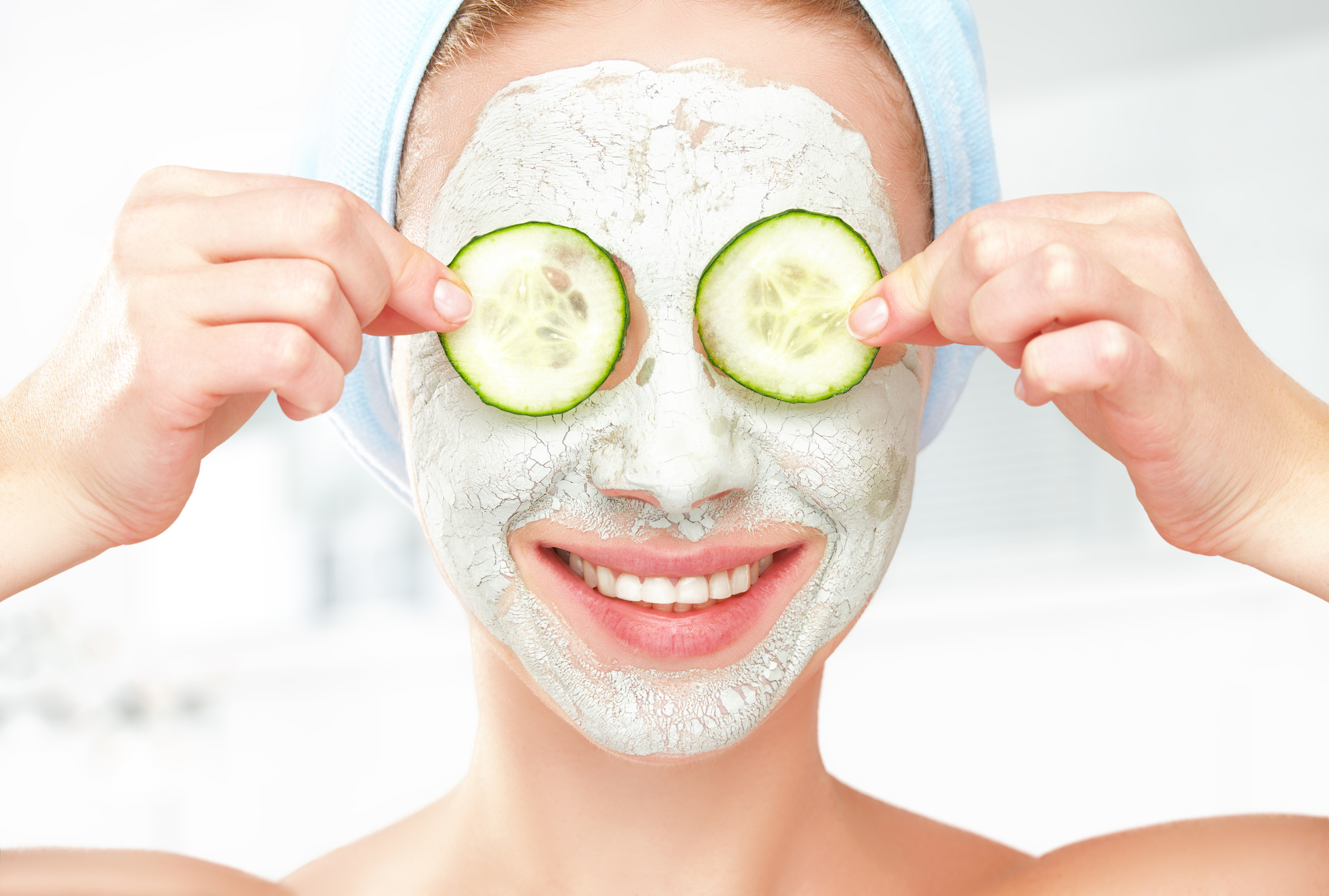
+ show Comments
- Hide Comments
add a comment